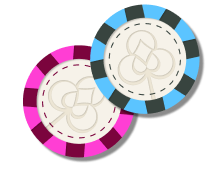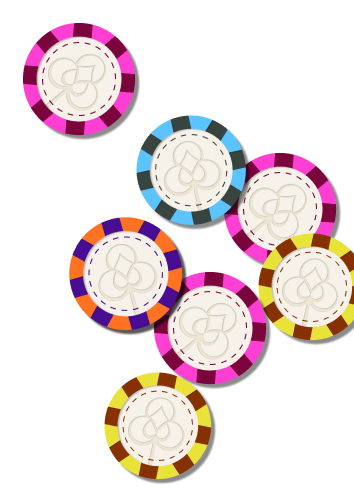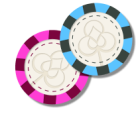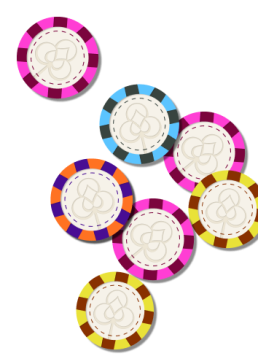Life, itself, is a game of odds. Whether you play your hand, bluff, or fold your cards, each situation presents us with a chance to learn, a chance to grow. But even the most optimistic person recognizes that someone can be dealt a bad hand in life. Euphemisms like, “turn that smile upside down,” or “get back on the horse,” aren’t always a match for a disappointing outcome.
In business, however, it might not be as simple as ignoring a bad hand. If it’s your boss that deals the hand, you must navigate it to continue working in the company and stay in her good graces. If a co-worker deals that bad hand, you should make sure it doesn’t become a recurring problem. Every type of business requires us to handle bad situations to move on to the next meeting or project.
There are also circumstances in which you have a bad hand and know that a competitor or co-worker has a better one. Folding every time is not a solution that is conducive to winning in poker or in life.
There are two ways to deal with bad hands in poker, especially if they seem to happen concurrently or too frequently. And harnessing the power of poker in these situations definitely translates into the world of business.
Overcoming the odds
What are the chances that a person will always have positive experiences with every employee, boss, or co-worker every day?
To quantify this, let’s briefly look at poker hands. There are 52 hands in a deck. In Texas Hold ’em, the best five-card hand wins. A player’s secret to making the best poker hand is usually their hole cards, the two cards they receive that no one else can see. The chance of those two cards being a pair – a very good starting hand – is 6%. And the chance of picking up pocket aces – the very best starting hand – is 0.5%
Of course, the five community cards can help players turn their hole cards into better or even winning hands. However, the reality is that players are rarely dealt good cards right off the bat. The odds make it so.
How to make a winning hand
Players can use community cards to make winning hands or make it seem like they made the winning hand by taking a tough situation and finding a way to make it better.
There are several ways to do this in a poker tournament. One is to find that the community cards make a bad starting hand into a better one, one that is playable and can win. However, since players do not know what their opponents hold and, therefore, can’t usually be sure which hand will win, confidence is key. By making the correct bets from the proper position, players can project so much confidence they can make any opposition fold.
If cards don’t make a better hand, a player can always bluff. The size of a bet based on the position at the table and the previous bets – all concepts taught by Poker Power expert poker instructors in a hands-on, friendly environment – can lead to a win.
Maybe you’ve been tasked with a daunting project with too many moving parts that you’re unfamiliar with at work. On top of that, your boss expects this project within a matter of days. You feel doomed to fail. Just like in poker, sometimes a little community can turn the whole game around. Leaning into your office community and collaborating on ideas while applying crucial delegation can make the project more manageable.
Here’s another real-world scenario. In a business meeting, all eyes are on you. The team presents a problem and turns to you for a solution. The easiest move would be to admit that the problem is too much for you to handle and push it on to someone else to solve. But that’s not the right move. You don’t need to know every detail of the situation to present a potential solution, bet on it, and give others a chance to call. You build the solution based on the knowledge you have and your experience, ultimately creating a winning hand. All-important problem-solving skills don’t just come out of thin air. You have to make strong, confident decisions with little information in the office too.
Playing blind
At the age of 18, Norwegian Annette Obrestad learned how to play poker online and did it very well. She embraced the concept of playing the players and not the cards. This means that she put the emphasis on her image at the table. In addition, she combined her position in relation to the dealer button and blinds, as well as the size of her chip stack and her opponents’ chip stacks to play the game.
She conducted experiments in many small tournaments but wanted to show her results on a bigger stage. Obrestad played in a 180-player tournament. She literally used a Post-it note to cover the part of her computer screen that showed her hole cards. She played with every piece of information at the table except the exact worth of her own cards.
Obrestad won.
She made her point in a dramatic way and took the poker world by storm. Obrestad showed that a player could win using all of the information at the table except the most obvious.
Own the bad hand
Regardless of the hand you’re dealt, you have to play, and how you do makes all the difference. Whether it’s in the office with a troublesome new boss, a reorganization that seems impossible to navigate, or maybe at home when relationship dynamics take an unexpected turn, you’ll have to adapt.
This soft skill might seem obvious, but it can ensure you’re able to take on the challenge of whatever is thrown at you. When we remain flexible, we position ourselves in the most advantageous seat. We’re able to think critically about our current and future states, while anticipating how our movements will affect us later on.
Learn how to be your most adaptive self, while engaging with a powerful network of women in Poker Power’s community poker lessons. We’ll see you at the table.










